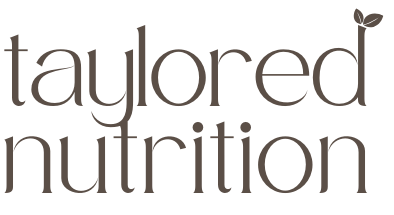Why a Healthy Gut is Key for Weight Loss
The link between gut health and weight loss has been the subject of much research in recent years.
Scientists have discovered that the gut microbiome, the collection of bacteria and other microorganisms that live in our digestive system, plays a critical role in regulating our metabolism and weight. By improving gut health, we can boost our weight loss efforts and achieve a healthier body composition.
The gut microbiome and weight
The gut microbiome has been found to play a critical role in weight regulation. In fact, research has shown that the composition of the gut microbiome differs significantly between individuals who are overweight and those who are lean (1).
One study found that obese individuals have a less diverse gut microbiome than lean individuals, with an overabundance of certain types of bacteria that are associated with weight gain (2). Other studies have found that specific types of gut bacteria can impact the body's energy balance and influence weight gain or loss (3).
In addition to these findings, researchers have also discovered that the gut microbiome can impact our hunger levels and cravings.
The gut produces hormones that regulate our appetite, such as ghrelin and leptin, and these hormones can be influenced by the gut microbiome (4). Research has shown that some gut bacteria can increase hunger levels, while others can suppress them (5).
Overall, these findings suggest that improving gut health can have a significant impact on our ability to lose weight and maintain a healthy body composition.
Ways to improve gut health for weight loss
So, how can we improve our gut health to support weight loss efforts? Here are some tips:
Eat a high-fibre diet: Fiber is essential for gut health as it feeds the beneficial bacteria in our gut. Studies have shown that a high-fibre diet can improve gut microbiome diversity and reduce inflammation in the gut (6).
Consume probiotic-rich foods: Probiotics are live bacteria that are beneficial to our health. Foods like yoghurt, kefir, and sauerkraut are all rich sources of probiotics and can help improve gut health (7).
Reduce sugar and processed foods: Studies have shown that a diet high in sugar and processed foods can lead to an overgrowth of harmful bacteria in the gut, which can negatively impact gut health (8).
Consider taking a probiotic supplement: Probiotic supplements have been shown to improve gut health and support weight loss efforts. In fact, a high-quality study published in the British Journal of Nutrition found that overweight individuals who took a probiotic supplement lost more weight than those who did not (9).
Manage stress levels: Chronic stress can negatively impact gut health by altering the composition of the gut microbiome. By managing stress levels through activities like exercise, meditation, and deep breathing, we can support gut health and promote weight loss (10).
The bottom line
In summary, gut health plays a critical role in weight regulation, and improving gut health can have a significant impact on weight loss efforts.
By consuming a high-fibre diet, consuming probiotic-rich foods, reducing sugar and processed foods, taking a probiotic supplement, and managing stress levels, we can improve gut health and support weight loss.
Incorporating these practices into a comprehensive weight loss plan can help us achieve our goals and maintain a healthy body composition for years to come.
References:
Turnbaugh, P. J., Ley, R. E., Mahowald, M. A., Magrini, V., Mardis, E. R., & Gordon, J. I. (2006). An obesity-associated gut microbiome with increased capacity for energy harvest. Nature, 444(7122), 1027
